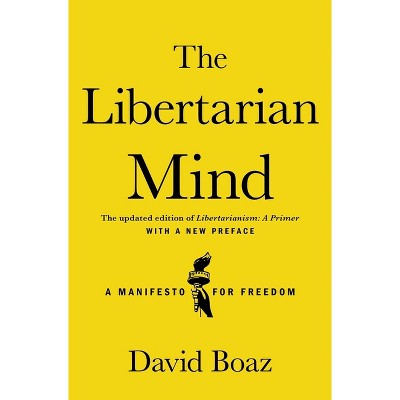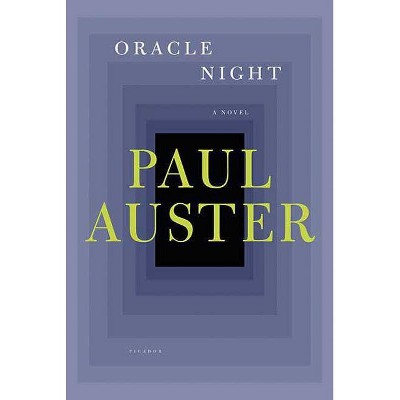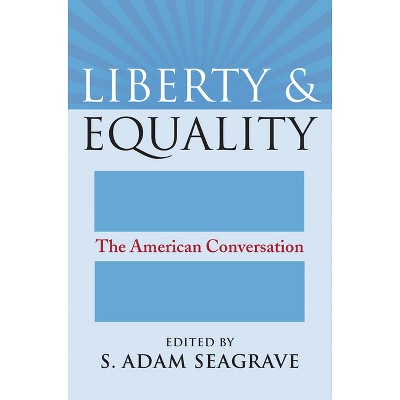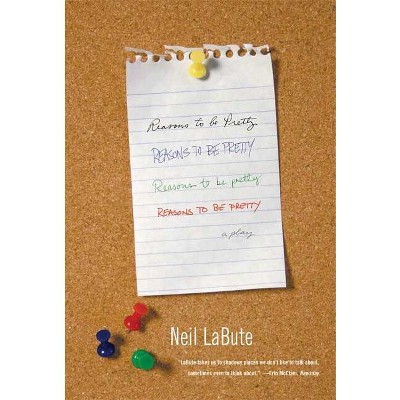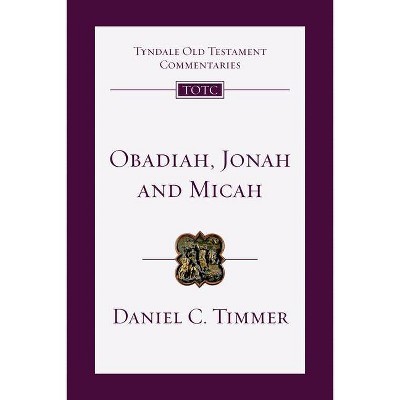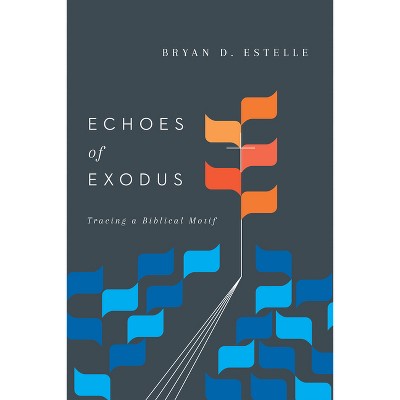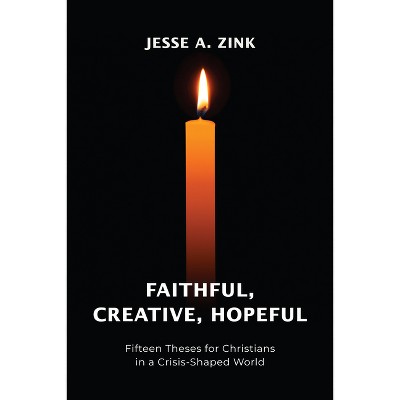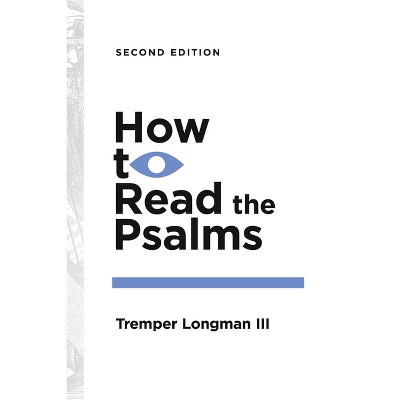Sponsored

Hopeful Realism - by Jesse Covington & Bryan T McGraw & Micah Watson (Paperback)
In Stock
Sponsored
About this item
Highlights
- Natural law as a rich tradition of Christian thought has often been neglected by evangelicals.
- About the Author: Micah Watson (PhD, Princeton University) is the Paul Henry Chair for the Study of Christianity and Politics at Calvin University, where he also directs the politics, philosophy, and economics program.
- 264 Pages
- Philosophy, Political
Description
About the Book
Natural law as a rich tradition of Christian thought has often been neglected by evangelicals. But in this time of deep polarization, this generous guide brings together robust natural law theory and practical cases for the evangelical concerned with bringing together their theological commitments to bear on their political judgments.
Book Synopsis
Natural law as a rich tradition of Christian thought has often been neglected by evangelicals. But in this time of deep polarization, this generous guide brings together robust natural law theory and practical cases for the evangelical concerned with bringing together their theological commitments to bear on their political judgments.
Review Quotes
"Hopeful Realism is a welcome conversation partner in the current renaissance of Protestant natural law theory. What stands out in this volume is the careful drawing of important categories that allow for principled distinctions to be drawn in how a society reasons morally. While not every one of their policy considerations are options I would personally adopt, what the authors have done is to help bring sobriety, restraint, and realism to the realm of Protestant political thought. This book is measured, clear, and thoughtful."
"Evangelical politics are a bit of a mess these days and seem to be guided by impulse rather than by thought. Covington, McGraw, and Watson have given us much to think about in their reflections on natural law. They recognize that God speaks to us through both Scripture and creation. God's creation has laws that govern it, and the authors of Hopeful Realism help us to think through how those laws help us to think through the most crucial political issues that we face today. This book is a must-read for evangelicals in the present political season (and beyond)."
"Evangelicalism has suffered badly from a thin political theology that leaves its members flailing in public life. I have long been convinced that the most fruitful but underappreciated resource for us is the natural law tradition. Hopeful Realism lays out this approach in a particularly biblical way, grounded in the Protestant tradition. Not satisfied to merely present their theory and defend it, the authors boldly and thoughtfully explain the 'hopeful realist' position on some of our most contentious political questions. This book isn't just abstract theorizing for fellow scholars; it's a serious resource for the evangelical church that could ground our political conversations in the unchanging wisdom of the Christian natural law tradition. It's desperately needed in one of American evangelicalism's most fraught moments."
"This sober, energizing work is a testament to the value of putting politics in its proper place for its own sake, and for the health of the church. Jesse, Micah, and Bryan have long been stalwarts for robust Christian political engagement and beacons of Christian faithfulness in academia and in our public life. Their intellect and the witness of their lives have been a blessing to a generation of students. Now, we all get to sit in their classroom, learn from these thoughtful men, and then go out into communities and our politics to pursue faithfulness there ourselves."
"Hopeful Realism is a welcome conversation partner in the current renaissance of Protestant natural law theory. What stands out in this volume is the careful drawing of important categories that allow for principled distinctions to be drawn in how a society reasons morally. While not every one of their policy considerations are options I would personally adopt, what the authors have done is to help bring sobriety, restraint, and realism to the realm of Protestant political thought. This book is measured, clear, and thoughtful."
--Andrew T. Walker, associate professor of Christian ethics and public theology at Southern Baptist Theological Seminary and fellow at the Ethics and Public Policy Center"Evangelical politics are a bit of a mess these days and seem to be guided by impulse rather than by thought. Covington, McGraw, and Watson have given us much to think about in their reflections on natural law. They recognize that God speaks to us through both Scripture and creation. God's creation has laws that govern it, and the authors of Hopeful Realism help us to think through how those laws help us to think through the most crucial political issues that we face today. This book is a must-read for evangelicals in the present political season (and beyond)."
--Tremper Longman III, distinguished scholar and professor emeritus of biblical studies at Westmont College and author of How to Read the Psalms"Evangelicalism has suffered badly from a thin political theology that leaves its members flailing in public life. I have long been convinced that the most fruitful but underappreciated resource for us is the natural law tradition. Hopeful Realism lays out this approach in a particularly biblical way, grounded in the Protestant tradition. Not satisfied to merely present their theory and defend it, the authors boldly and thoughtfully explain the 'hopeful realist' position on some of our most contentious political questions. This book isn't just abstract theorizing for fellow scholars; it's a serious resource for the evangelical church that could ground our political conversations in the unchanging wisdom of the Christian natural law tradition. It's desperately needed in one of American evangelicalism's most fraught moments."
--Rachel Ferguson, director of the Free Enterprise Center at Concordia University Chicago and author of Black Liberation Through the Marketplace: Hope, Heartbreak, and the Promise of America"This sober, energizing work is a testament to the value of putting politics in its proper place for its own sake, and for the health of the church. Jesse, Micah, and Bryan have long been stalwarts for robust Christian political engagement and beacons of Christian faithfulness in academia and in our public life. Their intellect and the witness of their lives have been a blessing to a generation of students. Now, we all get to sit in their classroom, learn from these thoughtful men, and then go out into communities and our politics to pursue faithfulness there ourselves."
--Michael Wear, president and CEO of the Center for Christianity and Public Life and author of The Spirit of Our Politics: Spiritual Formation and the Renovation of Public LifeAbout the Author
Micah Watson (PhD, Princeton University) is the Paul Henry Chair for the Study of Christianity and Politics at Calvin University, where he also directs the politics, philosophy, and economics program.
Jesse Covington (PhD, Notre Dame) is professor of political science and director of the Augustinian Scholars honors program at Westmont College in Santa Barbara, California. He teaches and writes in the fields of political theory, political theology, and constitutional law, with particular interest in the interrelation of religion and government.
Bryan T. McGraw (PhD, Harvard University) is dean of social sciences and education and associate professor of politics at Wheaton College, where he also directs the Aequitas Fellows Program. He is the author of Faith in Politics and has published articles on pluralism, liberal democratic political thought, and the place of religion in public life.

